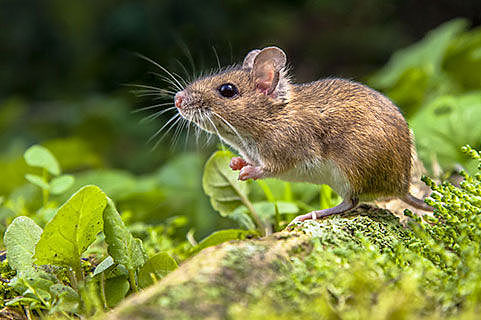
Of mice and men - new discovery may give insight into how our night vision works
Thursday 27 December 2018Scientists investigating how mice perceive light at night have made a discovery that may one day help visually impaired humans see better. The study, conducted at Duke University in Durham, North Carolina, has revealed that motion-sensing nerve cells in the retina change how they function when light gets low.
It has long been known that only a tiny amount of light - just one photon – is required to prompt a response in the light-sensitive retinal rod cells in mammals. But what has not been fully understood is the role that motion detection ganglions (DSGCs) play in the night vision process. The research revealed that DSCGs which normally react to “up” motion sacrificed some of the unidirectional preference, but in so doing improved the overall performance of the DSCG group. The net result is an improved ability to detect motion in low light.
Whilst it is not clear if the mechanism is the same in humans, the discovery paves the way for improved artificial vision technology. A large number of retinal prosthetics are based on the artificial stimulation of ganglions, and this kind of discovery offers the opportunity to fine tune the tech.
Sources:
1.Cell.com:
Gap Junctions Contribute to Differential Light Adaptation across Direction-Selective Retinal Ganglion Cells.2.Science Mag:
How humans—and other mammals—might have gotten their night vision.
Comments
Post a comment…
A Serious Blog
News and views from around the world on lighting, eyecare and eye conditions.
Twitter: @seriousreaders
Facebook:facebook.com/seriousreaders
Recent posts
- Parkinson's Light Therapy: Exploring Hope on World Parkinson's Day
- From gas lamps to LEDs: Understanding vehicle headlights and the glare debate
- Cracking the code: Genetic research reveals key answers for childhood glaucoma
- A clearer look at eye health and healthy habits to help protect your vision
- Will the clocks stop changing? The future of daylight saving time in the UK

Share your email address and we will keep you up to date as we learn more about light and offer you the best deals.